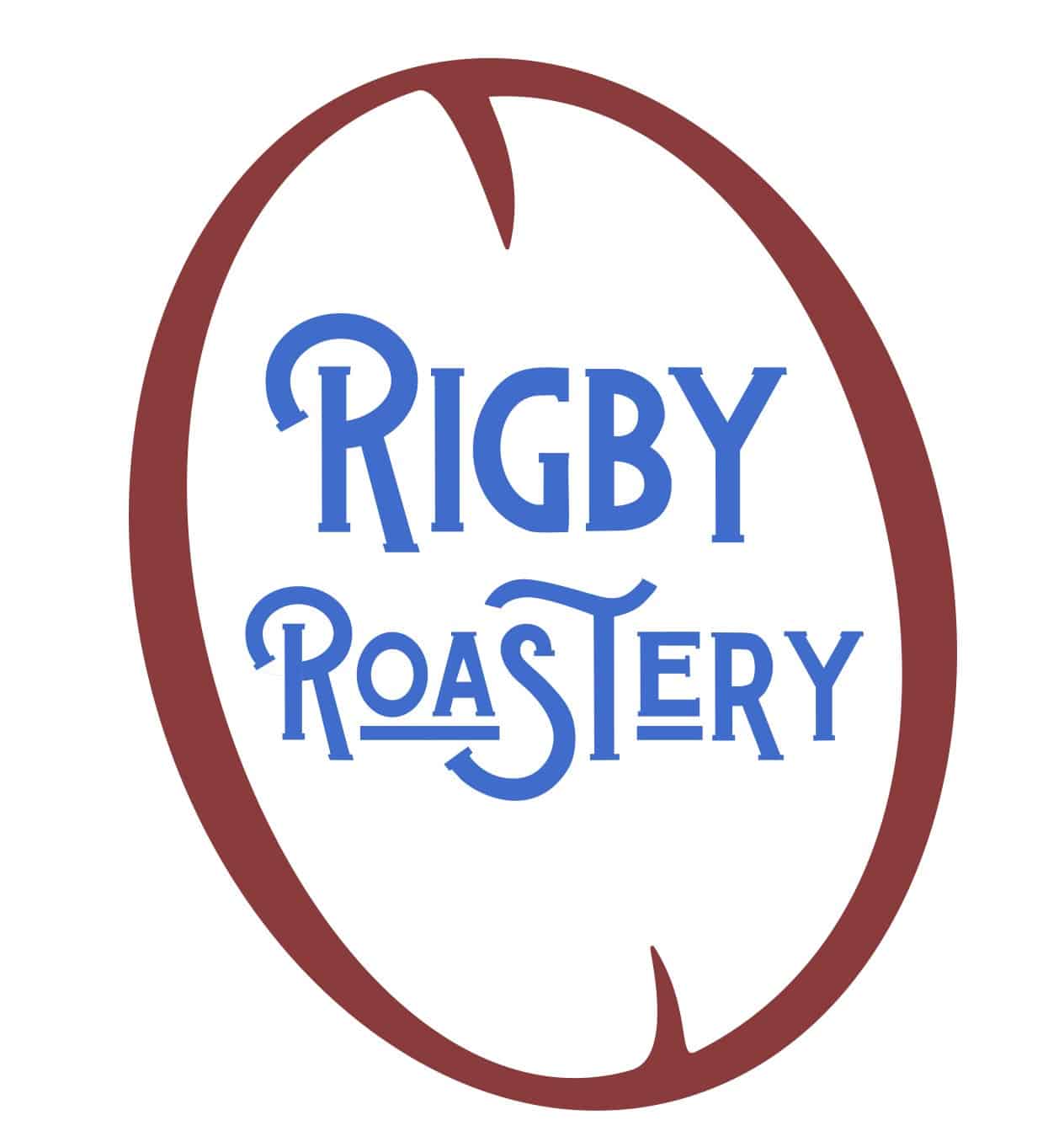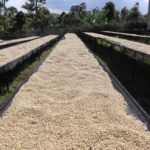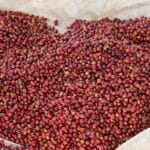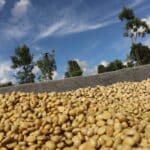Kenyan Coffee Iyego AB
Price range: $23.00 through $129.00
This coffee is juicy, bright, and sweet. A wonderful example of Kenyan Coffee. We taste Blackberry, Baking Spices, lemon, and Lime.
Kenyan coffee. Kenya coffee. Kenya AA coffee. Coffee from Kenya.
Kenyan Coffee
Kenyan coffee production is known for some of the most meticulous at-scale processing that can be found anywhere.
Firstly, bright white parchment, nearly perfectly sorted by density and bulk conditioned at high elevations is commonplace. Secondly, Kenyan processing is a matter of pride even for managers who prefer drinking Kenya’s tea to its coffee. Thirdly, ample water supply is available in the central growing regions.
This has historically allowed factories to wash, and soak, and wash their coffees again entirely with fresh, cold river water.
However, that being said, conservation is becoming key in certain places. Above all, this is happening in the drier areas where water, due to climate change, cannot be as taken for granted (but elsewhere too). For the most part Kenya continues to thoroughly wash and soak its coffees according to tradition.
Subsequently, the established milling and sorting by grade, or bean size, is a longstanding tradition and positions them well for roasters, by tightly controlling the physical preparation and creating a diversity of profiles from a single processing batch.
To sum up, this Kenya coffee has a flavor profile that is mildly tart and clean, with a strong sweetness and complexity.
Iyego has such a sweet smell to it, with dried fruited sweetness in the grinds, like raisin and date, accented by mulling spices. Aspects of raw sugars are a bit more potent in the wet aroma, and culminate a steam infused with cinnamon-spiced sugar, demerara, and a red raisin note.
We wouldn’t call the cup fruit-forward, but the spiced sugar notes prevalent in the cup, and fruited accents, yield some really interesting flavor profiles. The sweetness has unrefined sugar notes with a sprinkling of cinnamon and clove that make a positive impact on the aromatics.
A flavor of raw cane juice comes up as the coffee cools, and adds to the layers of sweetness. I picked up on fruited hints of red raisin and dried cranberry, and a bright highlight of pomegranate. Acidity makes its mark on the complex cup profile, but is pretty well-integrated into the cup flavors for Kenyan coffee.
Iyego Farmers Cooperative Society
The Iyego Coffee Growers Cooperative Society was established in 1959 with 12 member factories. Over the years, this number has dwindled to five due to instability in coffee prices and industry operations. The 4,500 active members collectively produce around 1,600 metric tons of cherry each year on 2,000 hectares of land. The members are also the owners and shareholders of the cooperative, which is run by nine elected board members and a supervisory committee. There are 70 permanent staff members year-round, with additional seasonal workers supporting the harvest.
Kenyan green coffee beans are renowned for their bold, fruit-forward flavors and complex acidity. This coffee was grown in nutrient-rich volcanic soil at 1,620 to 1,650 masl, slowly ripening at high altitudes in cool temperatures. The dominant varieties are SL-28 and SL-34, Ruiru 11, and Batian.
Iyego runs a coffee nursery for Ruiru 11 and Batian saplings, which they sell or offer to farmers on credit to graft onto their existing SL trees. The cooperative has been working hard to leverage digital tools to enhance communication, improve training, and streamline payments to its farmers.
Washed coffee is distinguished by the clarity of the flavors and attributes that it can achieve. During this process, the sugars present in the mucilage are removed through natural fermentation or mechanical scrubbing.
Fermentation can be done by stacking the coffee outside or placing them under water and allowing nature to take its course. After the sugars are removed, the beans then can be taken through a secondary washing to remove any additional debris, or taken immediately to the patios or beds for drying.
During wet processing, the pulp is removed mechanically. The remaining mesocarp, called mucilage, sticks to the parchment and is also removed before drying. Mucilage is insoluble in water and clings to parchment too strongly to be removed by simple washing. But mucilage can be removed by washing following fermentation.
The method and supervision of fermentation can make or break a coffee’s final outcome. These coffee cherries were hand sorted by the farmers before they went into production. After their skins were removed the coffee was put into fermentation tanks where it was stored at least overnight, then washed, soaked and spread on drying tables.
Once on the tables frequent turning is required until the coffee reaches the desired moisture level of 11-12%. Lastly the coffee, in its parchment parchment gets stored to rest until delivery to the dry mill.



